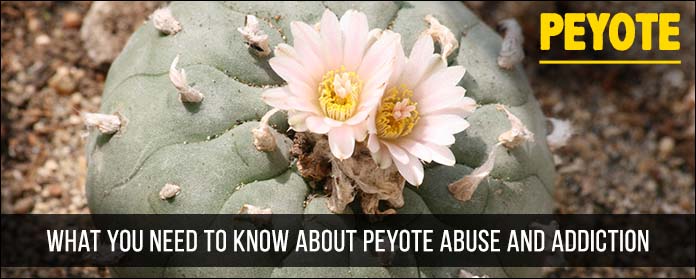What You Need to Know About Peyote Abuse and Addiction
If you suspect that someone you love has an addiction to peyote, it can be incredibly challenging to know how to best help them.
But before you can do that, you need to learn what peyote is. You also need to know what exactly makes it so addictive in the first place.
We’re here to help.
In this post, we’re telling you all about some of the most important peyote drug facts that you need to be aware of.
We’ll also teach you to understand the basics of the peyote drug. We’ll also tell you where you can find the help that you need to live a life without peyote.
What Is Peyote?
Before we speak about the consequences of peyote addiction — and tell you how to recognize if someone you love has fallen victim to it — let’s talk about what peyote is.
Though in some cases, peyote can be made synthetically, it is usually found in the peyote cactus.
In fact, Native Americans used it to produce strong hallucinogenic effects during their spiritual ceremonies.
This meant participants could get closer to the gods.
Mescaline is the main active ingredient in peyote, and it’s found in what looks like buttons on the crown of the cactus.
These so-called buttons get dried out. Then, they’re eaten or even used to create tea.
People experience the peyote “high” in lots of different ways.
Peyote is especially known for creating the sensation of synesthesia. It can also cause users to experience extreme emotions at both ends of the spectrum. It can even make it difficult for users to keep track of time.
Many people also experience visual hallucinations.
This is why peyote is classified as a hallucinogenic drug.
Peyote is also known for the length of the high that it creates. Users say that it can last anywhere from seven to twelve hours.
Peyote Drug Facts: The Risks
Now that you understand the basics of the peyote drug?
Let’s talk about the risks associated with using it. We’ll also talk about the side effects that many people experience.
In the short-term, those who use peyote may experience nausea and vomiting, and an increase in their heart rate and blood pressure levels.
They may also find it hard to catch their breath.
In the long-term, people who have developed a peyote addiction say that they suffer from intense flashbacks.
This is true even for years after they’ve stopped abusing peyote.
In many cases, the flashbacks are far from pleasant, causing serious emotional distress. Especially if peyote is used in conjunction with other drugs, users will raise their risk of having a stroke or a heart attack.
In some cases, extended use of peyote over the course of months or years has even been shown to cause serious and lasting psychological issues. These include problems with paranoia, psychosis, even persisting perception disorder.
Understanding Peyote Addiction
There’s a reason why so many people feel more comfortable experimenting with peyote and other hallucinogens than they would with other street drugs.
That’s because peyote, unlike drugs such as cocaine and meth, isn’t physically addictive. When someone uses peyote, they don’t develop the standard out of control behavior that many people do when they need their next fix.
Instead, what happens is that they develop a serious tolerance to peyote and other hallucinogens. This means that they’ll need to take more each time to experience the same intense high that they did before.
This makes them much more likely to fall prey to some of the long and short-term side effects we discussed in the previous section.
Additionally, when it comes to understanding peyote addiction, it’s the psychological addiction that many users develop that’s truly frightening.
You may find that they seem to lose touch with reality, or that they want to spend less time in it. You may also notice that when a peyote addict isn’t high, they seem exhausted, annoyed, and overly hungry.
The peyote addict may also feel numb to pleasures and hobbies that they once enjoyed. This is because these things just aren’t “enough” for them anymore.
Getting Help for Peyote Addiction
Because of the confusing nature of peyote addiction and abuse, it can be very difficult for addicts to find the help that they need.
If you or someone you know has lost their job, withdrawn socially, or had a decrease in their quality of life because of a dependency on peyote, there are options.
In most cases, rehabilitation centers and programs will focus on stopping the sense of psychological addiction that most users develop. It will teach users how to live their lives and process their emotions and experiences without the drug.
Holistic rehabilitation and therapy is also an excellent option for those who are struggling with peyote addiction. This makes it much easier for the addict to get personalized treatment.
Above all, the support of loved ones can have a huge impact on a peyote addict’s recovery.
Peyote Addiction: What’s Next?
We hope that this post has helped you to better understand not only the consequences of peyote addiction but also how this addiction pattern looks different than others.
When you’re ready to stop abusing peyote in your life, or if you just want to help someone you love, you have options.
We want to help you to find the right treatment plan.
To learn more about addictions to hallucinogens and other drugs, click here. We can also help you to find the treatment center that will help you or someone you care about to get their life back.





